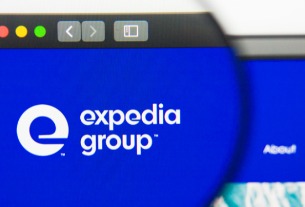Google, which had already offered direct hotel booking on its mobile website, recently added that capability for desktop websites. Representatives of Google, operator of the world’s largest search engine, declined to comment last week, nor would they disclose how many U.S. hotels were included in the service.
Regardless, the move echoes online retail giant Amazon.com and its decision earlier this year to run a trial program for direct hotel bookings.
Additionally, travel-review leader and former Expedia affiliate TripAdvisor has been rapidly expanding the number of destinations that can be booked directly through its site. Last month, the company added Marriott International as a supplier whose rooms can be booked directly through TripAdvisor.
From a regulatory standpoint, these new entrants could end up benefiting Expedia by influencing how antitrust officials view its pending acquisition of Orbitz. Expedia said in February that it would acquire Orbitz for $1.34 billion. As of late last year, Expedia, Orbitz, Travelocity (which Expedia acquired earlier this year for $280 million) and Priceline Group collectively accounted for 94% of the OTA market in the U.S., Phocuswright reported in November.
Expedia and Priceline are Nos. 1 and 2, respectively, on the Travel Weekly 2015 Power List, and Orbitz Worldwide is No. 7.
Google’s further entry into the travel-booking space and OTA consolidation has spurred two schools of thought in terms of how regulators will approach Expedia’s pending acquisition. One view was stated by Guggenheim Securities analyst Paul Gallant, who said that Google’s move could help mitigate antitrust concerns.
“We view [Google’s, Amazon’s and TripAdvisor’s] collective entry into the OTA market as a materially positive development for Expedia-Orbitz, because a proposed merger with potentially about 80% market share would face a reasonable risk of being challenged,” Gallant wrote in an op-ed column for Barron’s this month.
Other analysts, however, said that the market share controlled by Expedia and Priceline might raise further red flags for antitrust regulators. UBS analysts this month, for example, downgraded Orbitz because of the perceived risk that regulators would quash the deal.
At stake is a U.S. online travel market that will account for 45% of domestic travel spending this year and is estimated to surge 37% between 2012 and 2016, to $166.2 billion, according to travel research firm Phocuswright. So far, OTAs account for about a third of that market, while suppliers account for the rest.
How quickly larger but more generalized intermediaries like Google and Amazon shift that market and further hem in OTAs remains in question. While neither Google nor Amazon are publicizing or even disclosing details about their moves into direct travel booking, this migration could have a large impact on online travel because of the sheer size and Web influence of those two companies.
This spring, Web-traffic research firm ComScore estimated that Google’s sites attracted more than 200 million unique monthly visitors, the most of any single U.S. entities, while Amazon’s and TripAdvisor’s sites brought in 175 million and 59 million visitors, respectively.
By comparison, Expedia’s sites were bringing in about 24 million visitors.
And while additional intermediaries such as Google, which so far has been primarily a referral source for the travel industry, may be cause for concern among OTAs, they have also given OTA leaders like Expedia CEO Dara Khosrowshahi an argument against the perceived industry consolidation that has caused antitrust regulators to continue to investigate the Expedia-Orbitz deal.
“We’re one of the largest travel players in the world, [yet] we’re less than 5% of the global marketplace,” Khosrowshahi said in a June interview.
Still, others have argued that the collective domestic market share controlled by Priceline and an Expedia-Travelocity-Orbitz combination could raise opposition to the pending transaction.
Earlier this month, UBS downgraded Orbitz’s stock to a “sell” rating from a “hold” specifically because of the risk that the buyout would be denied by U.S. regulators. Orbitz’s stock, which jumped 22% when the Expedia agreement was announced in February, had since fallen about 5% as of late last week.
Regardless, the combination of larger Web intermediaries moving further into the online travel space, coupled with continued OTA consolidation, ensures that smaller online travel companies will continue to be squeezed out, especially in the U.S, said Douglas Quinby, Phocuswright's vice president of research.
“There’s increased pressure and challenges for smaller players to compete in the market,” Quinby said on a July 9 webinar presentation. “We’ve been seeing this already in the impact on traffic.”
Read original article




